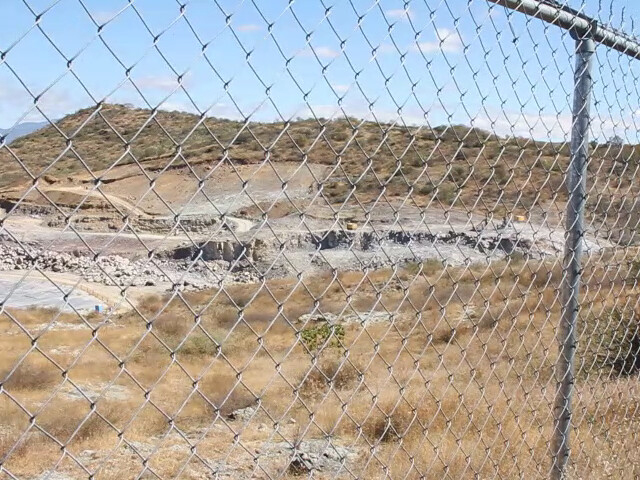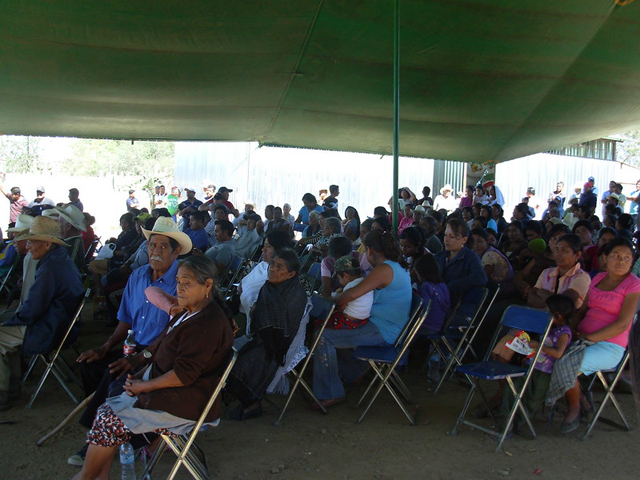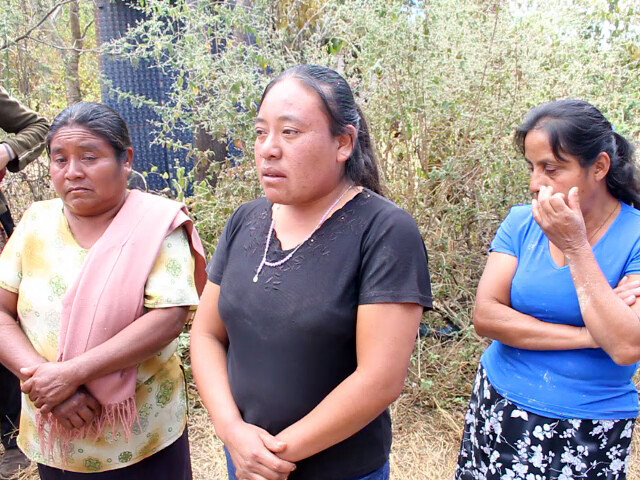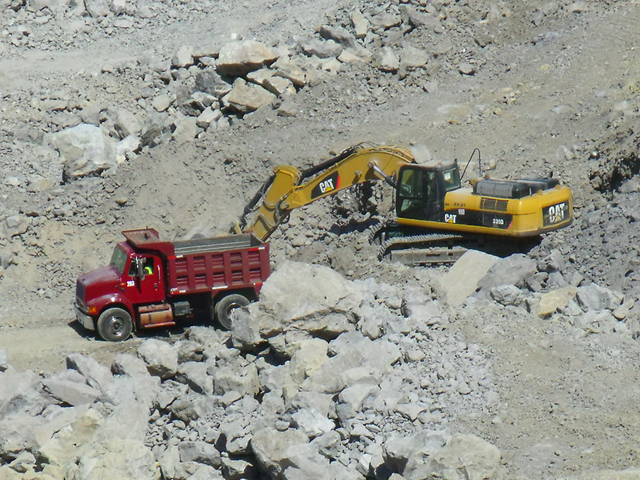Opposition by Zapotec people in the town of San José del Progreso to a polluting and destructive silver mine dates back more than ten years. The violence in the town, located south of Oaxaca City in southern Mexico, was described in news stories in 2012. Leaders of the Zapotec protests were murdered left and right while the owner of the Cuzcatlán mining operation, the Canadian firm Fortuna Silver Mines, and the politicians who supported their opening the mine, denied any involvement in the violence.

An article on December 2 in the Latin American news magazine NACLA Report on the Americas brings the sad story up to date about a formerly peaceful community and their commitment to their Zapotec culture, their desire for clean water, and their willingness to protest the conditions under which they are forced to co-exist with the foreign polluter. The story is not a happy one.
Last year, according to the Zapotec the author spoke with, a toxic spill occurred at the mine and entered the Coyote River. The result was a foul-smelling white mud that was left in the vicinity of the wells that supply drinking water for Magdalena Ocotlán. That community had no safe water to drink. The government’s Environmental Protection Agency assessed a fine on the company but it insisted that the Cuzcatlán mine did not have to prepare a remediation plan. Officials in Magdalena Cuzcatlán say they have never been informed about contaminants and they continue to fear the impact of the spill.

More recently, on October 5, 2019, the residents of San José chose an unusual, attention-grabbing approach for their latest protest. They gathered in the Fortin hotel in downtown Oaxaca City during the awards ceremony for the annual Oaxaca Film Festival to protest the fact that the mining company was one of the sponsors of the event.
One of the activists, dressed in a skeleton mask and a construction cap, denied that they intended to boycott the ceremony. Instead, “We came to express our firm rejection of the Fortuna Silver Mines company…which with just a few pesos tries to fool us into thinking it’s giving us development and social benefits, when in reality it’s taking the wealth of our subsoil and polluting our communities.”
In the evening the activists disrupted the awards ceremony by shouting phrases against Fortuna Silver Mine and for a land free of mining. The film festival canceled its alliance with Fortuna but the company continues its propaganda outreach program throughout Oaxaca—advertising at the local airport and marketing outreach in tourist spots. As the state government increases its spending to promote tourism, the silver mine raises its budget for its own outreach purposes.

The mining company says that it spends about $1 million per year on social programs in the state. It claims that 70 percent of its employees are natives of the region. Opponents argue that those figures are minuscule in comparison to the wealth the company is taking from the ground. The Mexican subsidiary of Fortuna reported in 2017 a net income of $66.3 million while 88 percent of the local people live below the poverty line. Almost half of them live in extreme poverty. The company is one of the top three producers of silver in Mexico.
The divisions in San José between supporters of the mine and opponents appear to be just as bad as they were in 2012. Opponents and supporters use two different taxi services, shop in two markets, and even attend two different churches. The tension is palpable as soon as one enters town. The fabric of the community is broken, argues the organizer of one anti-mine group.

The conflict in San José began in 2006 when Fortuna started signing agreements with local landowners. The company got exploration permits through confidential agreements with government officials but it did not inform the public of its intensions to conduct mining operations.
While the author of the article published last week, Samantha Demby, makes an effort to present the arguments of the Canadian mining company and its Mexican subsidiary, her sympathies for the Zapotec victims of the duplicity of the company come across quite clearly.